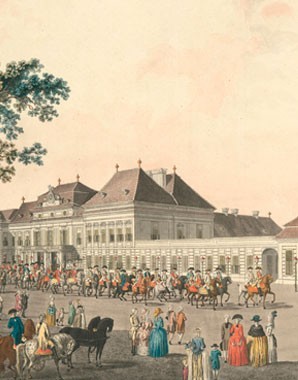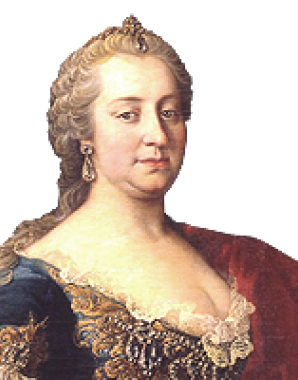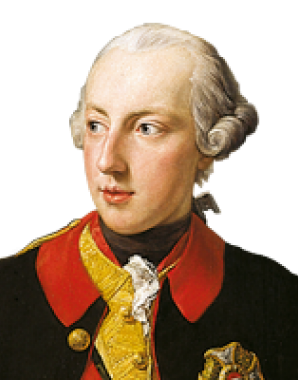Laxenburg – the Habsburg Arcadia
The house of Habsburg remained faithful to Laxenburg over centuries. It was here that monarchs sought distraction and fled their everyday responsibilities. The motto 'Rerum irrecuperabilium summa felicitas est oblivio' translates freely as 'Happy is he who can forget such things as can no longer be changed …'
This Latin inscription exists to this day on the oldest part of the complex, the 'Altes Schloss'. From the Middle Ages, the Habsburgs appreciated the virtues of Laxenburg which, situated in the wetland forest along the Schwechat river, an area rich in game, offered ideal conditions for hunting, a particular passion of the Habsburg family. Above all in spring and in the autumn, the location provided recreation in rural solitude, while at the same time it was close to Vienna.
Laxenburg acquired imperial stature thanks to the generous extension work carried out in the mid eighteenth century. Maria Theresa had the older building redesigned and extended by way of additional wings which, known as the Blauer Hof (Blue Court) and the Neues Schloss (New Palace), now provided the imperial family with accommodation that befitted their status. Courtly society was entertained in the airy garden dining hall, the casinos, garden pavilions and Laxenburg’s own theatre. There thus arose an extensive complex of buildings grouped around several courtyards and squares, reflecting the basic tenor of the flat plain and blending with the vast landscaped environs.
Even Joseph II, who tended to have a somewhat reserved attitude towards the architectural inheritance of his mother, took pleasure in Laxenburg and, in an impressively short time of just two years, with the help of 300 sappers, had the Lustgarten (pleasure garden) and Jagdpark (hunting grounds) – hitherto arranged in strictly geometric form – converted into one of the most important English landscape gardens of central Europe. As with all the imperial gardens, he also made the Laxenburg Park accessible to the public.
Franz II (I) had a particularly special relationship with Laxenburg, and under his rule the complex experienced a heyday. Here, Franz could forget the cares of state and give free rein to his artistic inclinations, indulge in his botanical passions, practise his skills as a craftsman in his own carpentry workshop, and defiantly, amid the pseudo-medieval fantasy architecture of the Franzensburg, emphasize the venerability of the house of Habsburg at a time when, outside the walls of the Laxenburg garden, his concept of the old world was gradually falling apart and Napoleon was making life difficult for him. 'But they will leave me Laxenburg, won't they?' Franz is said to have asked in a moment of extreme distress.




















